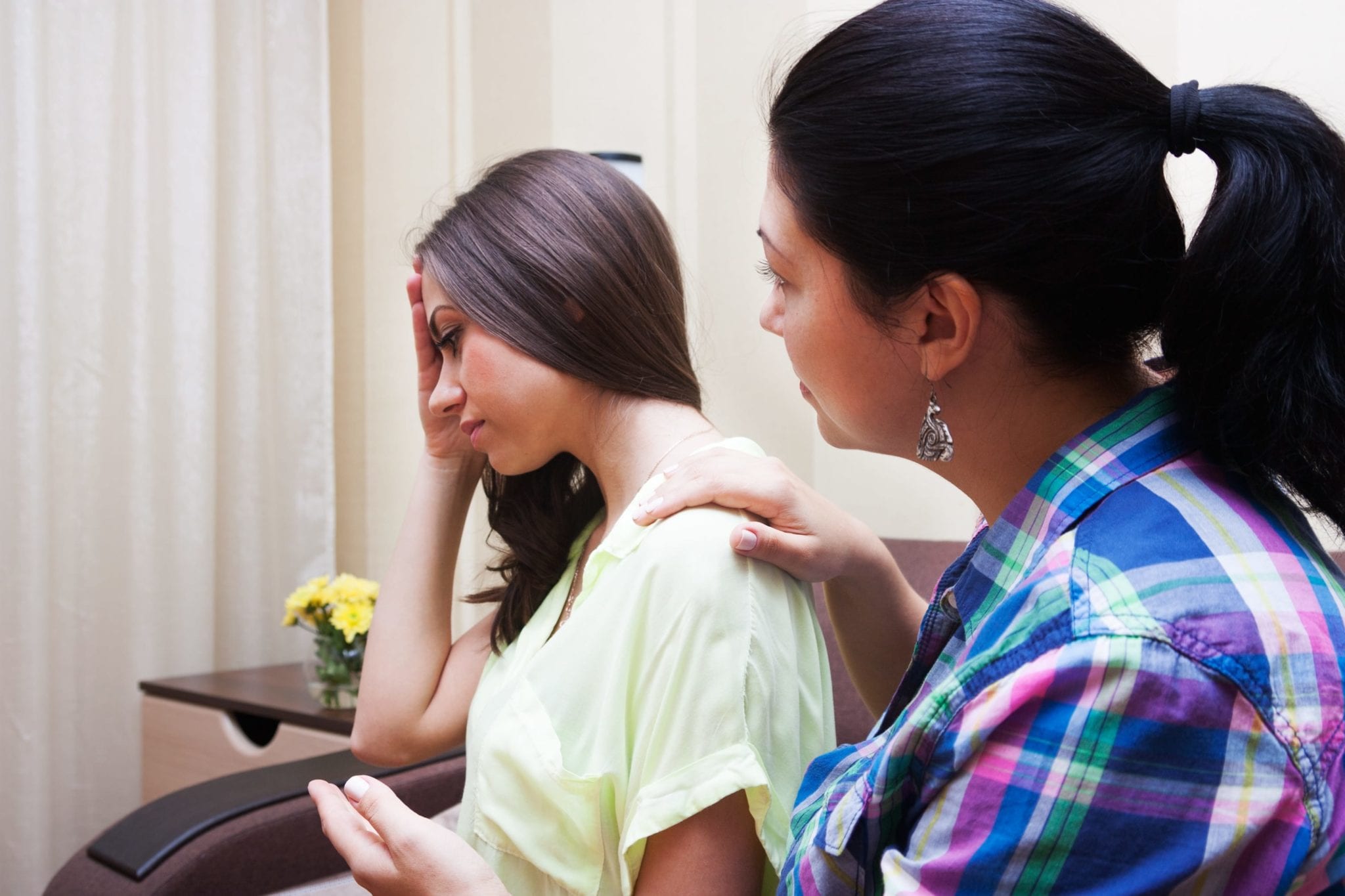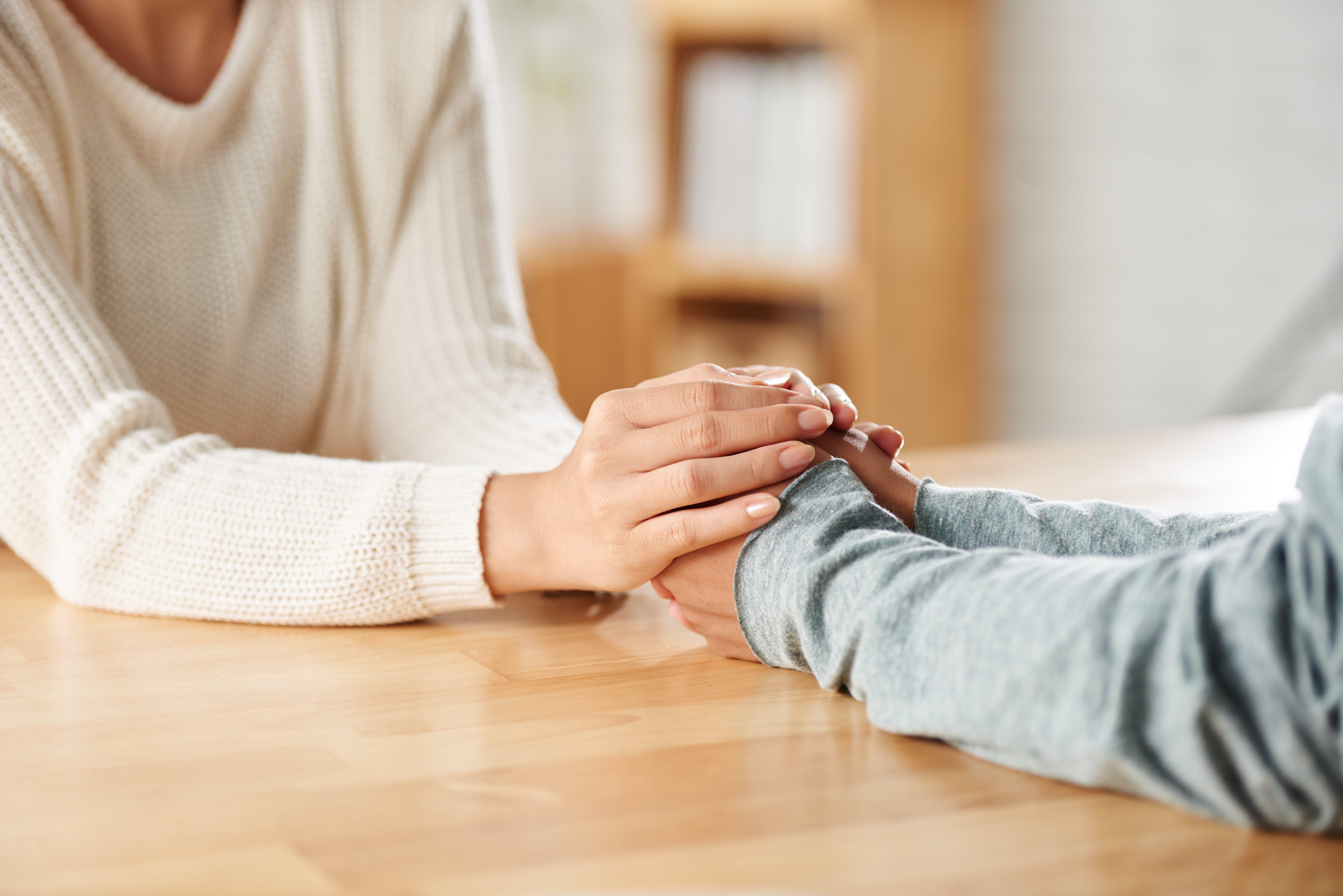Helping Your Friend
Nearly one million women have abortions every year.
And they all think they are the only one.
Your friend may not even have been aware of what abortion truly is, and how it can impact the spiritual and emotional health of those who choose it. And so, their life and death decision may have unfolded in isolation, secrecy, and shame.
They may be going through guilt and grief and deep emotional turmoil. You can encourage your friend to seek healing through our confidential programs. Finding faith to take that risk is often the first step to finding God’s love after abortion. You can help them take that step to start the healing process today.
Abortion Recovery Support offers Bible study support groups throughout the year, in a private, confidential and caring setting. We run groups at various times throughout the year. Contact us for more information.

How to have a healing conversation.
- Listen, then listen some more--and don't change the subject.
- Reassure them that abortion can be forgiven--never condemn.
- Build up a sense of hope--their emotions are normal and can be healed--but don't insist they did the right thing.
- Allow anger, regret or any other strong emotion, but don't allow blame or push them to forgive.
- Start the conversation. Consider mentioning that you’ve become aware of help and ask if you may share this website or the phone number for Abortion Recovery Support.
(adapted from afterabortion.org)
“Women who have had abortions are often denied the opportunity to grieve and to resolve the trauma, injustice, and pain they have experienced. By displaying a compassionate and understanding attitude toward post-abortive women, you will send the message that they can turn to you if they need help. If a woman does share her abortion experience with you, the best way to respond is to listen with understanding and compassion. Encourage her to express her feelings. Tell her how sorry you are for what she has been through and let her know that you would like to be there for her.”
-David Reardon, Ph.D.
(The above excerpt is from Pamphlet, Post Abortion Syndrome, Are You At Risk? by David Reardon, Ph.D, published by Heritage House ’76)


Here’s what some of our Abortion Recovery Support participants have said about the class:
"This class is an eye opener and a must. It uncovers the deep buried feeling we try to hide from abortion. After taking this class it brings healing from your past and allows you to live a life of true forgiveness." - Participant
"This study has given me permission to mourn. It has provided healing through God’s word by learning about God’s character, and sin, and forgiveness. I am thankful for this Bible study and thankful for God’s forgiveness and great mercy on His people. The memorial services tonight will be a time of closure and I am just so grateful for the ladies facilitating this study." - Participant
"It has been so helpful. It has released me from a sense of guilt and shame. I know this peace only comes from the Lord." - Cadence
Symptoms: Post Abortive Effects
Symptoms that may indicate post-abortion syndrome, (as described by Dr. Paul and Teri Reisser in their book, Help for the Post-Abortive Woman).
- Guilt
- Anxiety
- Avoiding Children or Pregnant Women
- Feeling “Numb”
- Depression
- Thoughts of Suicide
- Anniversary Reminders
- Experiencing The Abortion Again
- Wanting To Get Pregnant Again
- Fear of Infertility
- Unable to Bond
- Fear that Future Children Will Die
- Eating disorders
- Alcohol and Drug Use
